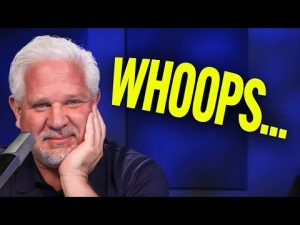**Presidential Prayer Service: A Divisive Moment or a Call for Mercy?**
In the aftermath of a contentious election, there is no shortage of debate on how American politics and faith intersect. Recently, President Trump attended the traditional National Prayer Service at the National Cathedral—a ceremony historically marked by unity and prayer for the country’s leaders. However, this year’s event took an unexpected turn as Bishop Maryanne Edgar Buddy, the first woman to hold such an esteemed position in the Episcopal Diocese of Washington, used the platform to deliver a rather scolding address to the outgoing president. This moment raised eyebrows and ignited discussions about the role of faith leaders in politics.
Typically, this event is reserved for spiritual reflection and support, where attendees offer their prayers for the resilience of the country, the protection of the vulnerable, and overall peace. Bishop Buddy, however, chose to address contemporary issues like immigration and societal fears, which, to some, felt more like a political statement rather than a prayerful sentiment. This divergence from tradition has some conservatives raising important questions about the direction of faith in contemporary America.
The critique of Bishop Buddy’s sermon comes from both sides of the aisle. Many are scratching their heads, wondering how this left-leaning message holds any merit in a National Prayer Service. Some see it as a perfect illustration of the split between traditional values and a newer, more progressive interpretation of faith. This symbolism isn’t lost on those who worry about what is happening to the fabric of the church and its teachings. Critics argue that instead of preaching unity and love—hallmarks of Christianity—she chose to preach divisive politics at a moment when healing and reconciliation were called for.
Furthermore, the claim that immigrants are vital for laboring in industries such as agriculture and healthcare, while true, raises complex discussions regarding legality and morality. To conflate legal and illegal immigration in a prayer service meant to invoke spirit and peace might strike many as disingenuous. The emphasis on providing sanctuary for “immigrants,” while ignoring the importance of lawful entry into the country, may lead many to question the intent behind such statements. Does she truly represent the heart of faith, or is she merely a weapon in the arsenal of progressive politics?
Moreover, the appropriateness of a woman preaching from this esteemed pulpit has also sparked discussion. Conservative scripture often outlines specific roles for women within the church, leading to important questions about the interpretation of these texts in modern contexts. Is the church’s evolving perspective on scripture and authority paving a path for divisiveness rather than unity?
As conservatives reflect on this moment in the National Cathedral, one thing stands clear: the nation remains deeply divided. Whether one supports the contents of Bishop Buddy’s address or not, the service illuminated the urgent need for a clear dialogue about the role of faith in governance—from representing moral teachings to confronting contemporary issues. Perhaps what this prayer service showcased more than anything else was just how critical it is for Americans to engage in conversations that transcend politics, focusing instead on common values that unite rather than divide.
In the end, as the markets soar and uncertainties loom, it’s essential for citizens to remain prepared— not just financially by diversifying investments, but spiritually and politically by fostering dialogues that build bridges rather than walls. Because in the midst of all this turmoil, what most prayers truly call for is not just mercy, but understanding amid the chaos. As the battle for the soul of the nation continues, let’s hope for a convergence of faith and unity, at least in the spaces that profess to bridge the two.







